Seagate Duet is a 1TB USB HDD with automatic Amazon Drive cloud backup capability
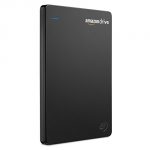
When it comes to backing up a computer, I am a big proponent of the cloud. While local backups should also be part of your plan, redundancy is key. If there is ever a disaster, such as a flood or fire, you will be very glad for the cloud backup. If the cloud storage company goes out of business, you will be thankful for the local copy. In other words, don't just rely on one method.
Seagate has an interesting new product, called "Duet", that it developed with Amazon, and it aims to create a positive redundant backup experience. The hardware itself is rather basic -- a 1TB 2.5-inch portable USB (Type-A) hard disk drive. The magic is in the software (Windows and Mac only), however, as it creates automatic cloud backups of the HDD contents to Amazon Drive in the cloud.
SMBs hold on to their hardware longer than enterprises

Smaller and medium-sized businesses would rather wait a couple years longer before upgrading their systems, compared to large enterprises, a new survey by memory and storage company Crucial shows. Out of 350 IT decision makers in the UK, US, Germany and France, more than half (52 percent) say their company has a hardware refresh cycle of about three to four years.
Large organizations replace systems every two years or so (23 percent) while small organisations wait four years or more (22 percent). The reason behind upgrades is always the same -- their current systems are no longer good enough. Sometimes, businesses would opt to reimage and redeploy problematic storage drives (28 percent), and sometimes, they’d just buy new computers to replace the old and the slow ones (19 percent).
8 superb -- and cheap -- Raspberry Pi alternatives
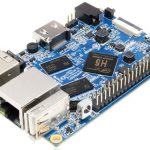
As great as the Raspberry Pi is -- and let's be honest, all of the devices in that family are excellent, especially for the money -- it’s not the only such device available to buy, and some of the rival systems are arguably better as they come with Wi-Fi built-in, and other tricks, such as the ability to double as a wireless router, run Android, or display on-board scrolling messages.
While there are plenty of pricier (and therefore more powerful) options available, I’ve focused on the more affordable choices here -- ones that match, or better, the Raspberry Pi for value and will do everything you'd expect from them, and more.
Omega2 is a $5 Raspberry Pi rival, with built-in Wi-Fi and storage

The Raspberry Pi is a fantastic low-cost computer, available in a choice of versions. The Raspberry Pi Zero is the cheapest of the bunch, priced at just $5, plus all the extra bits and pieces you need to get it up and running.
Omega2 is an identically priced Linux computer designed for building connected hardware applications, but unlike the Zero it has integrated Wi-Fi (802.11 b/g/n) and on-board flash storage. No need to add a Wi-Fi dongle or SD card.
Western Digital launches 10TB 'WD Gold' datacenter hard drive

Even though solid state drives are all the rage nowadays from a performance standpoint, mechanical hard drives still reign supreme for capacity. While SSDs should eventually catch up to HDDs in this regard, that is not going to happen any time soon. Even when SSDs do reach capacity parity, their prices will not. In other words, I wouldn't hold my breath waiting for an affordable 10TB solid state drive.
Speaking of 10TB hard disk drives, today, Western Digital announces a datacenter HDD with that capacity. This is the company's highest-capacity 'WD Gold' drive ever.
In the wake of UK Brexit vote, ARM Holdings is to be bought by Softbank for $32 billion
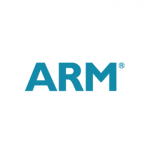
The technology industry in the UK was rocked by the historic Brexit vote in the referendum about membership of the EU just a few weeks ago. Concerns were voiced that tech companies would scramble to leave the UK, and with Japan's Softbank Group due to buy UK chip-maker ARM Holdings for $32 billion (£24 billion), this could just be the start of things.
ARM chips are found in mobile devices produced by Apple and Samsung, and more recently it has branched out into the Internet of Things. But while some will be unhappy with the change of ownership, Softbank says that it will not only remain headquartered in Cambridge, UK, but will look to at least double its UK workforce.
MEEM memory cable automatically backs up your phone every time you charge it
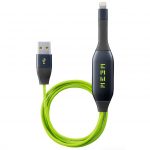
While most smartphones can backup photos and other content to the cloud on a regular basis, there are downsides -- backups handled by third-party apps might not always happen, free storage can quickly become full (I’m looking at you, iCloud) and of course cloud services could be compromised.
MEEM memory cable offers a low cost solution to all of those problems -- automatically, and securely backing up your iPhone or Android device every time you charge it.
You'll still be able to hack Linksys WRT routers with open source firmware despite new FCC rules
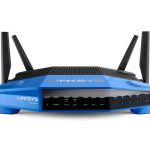
In a little over two weeks, new rules will come into play that pose something of a threat to people who like to install open source firmware on their routers. The Federal Communications Commission is implementing guidelines designed to prevent users from modifying their routers in such a way that would make them operate outside of their licensed frequency range and interfere with other devices.
Many router manufacturers have opted for the easy way out, and decided to simply completely block (or continue to block) the installation of third party, open source firmware. Not so with Linksys. The company has been working with Marvell and the makers of OpenWrt to ensure that the Dynamic Frequency Selection (DFS) setting cannot be disabled so that users can still install and use open source firmware.
Lenovo will make enterprise harware in Europe for EMEA customers
Kingston launches new hardware encrypted flash drives

One of the best known names in the flash memory market, Kingston acquired the IronKey brand from Imation in February of this year.
IronKey has long been one of the leading brands in encrypted Flash drives and today we see the first fruits of the new partnership with Kingston's launch of two new managed and 256-bit AES hardware encrypted USB drives.
AMD Zen processors will have 32 cores and Symmetrical Multi-Threading
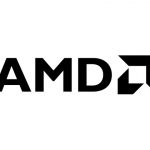
We seem to have hit something of a ceiling when it comes to the raw speed of processors; things are now progressing rather more slowing than they have been. Attention has now turned to other areas, such as the number of cores. Dual-core, quad-core, and octo-core CPUs are now quite common, but AMD's upcoming processor -- codenamed 'Zen' -- will feature no fewer than 32 cores.
We already knew that Zen would have 'a lot' of cores, but a CERN engineer has now revealed not only how high this figure is, but more details of the processor. But this is not a true 32-core processor -- AMD is using a little trickery to up the numbers.
Seagate faces class-action lawsuit over faulty 3TB hard drives

Hard drive failure is inevitable, but manufacturers will generally provide an estimate of how long their products will last, giving businesses and consumers plenty of time to backup their drives. When a hard drive fails unexpectedly and long before it should, it can cripple a business.
A class-action lawsuit has been brought against the hard drive manufacturer Seagate after many users reported that the company’s 3TB drives were failing at an alarming rate. The law firm Hagens Berman and Sheller has filed a case in the U.S. District Court for the Northern District of California.
DriveSavers offers data recovery for victims of east coast blizzard
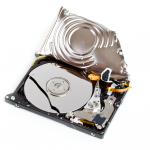
If you live somewhere between the Carolinas and New York then you likely had an interesting weekend. One of the biggest snow storms in recorded weather history swept up the coast paralyzing numerous states in its wake.
For most areas the problems simply consisted of massive snow removal, though certain areas along the coast dealt with flooding thanks to a storm surge and full moon and others had power outages. While on the whole it wasn't as bad as it could have been, there were still losses.
AMD says SYSmark benchmarks are Intel-biased and don't reflect real-world usage
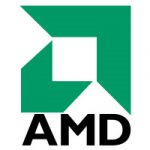
Chip maker AMD has complained that the popular benchmarking tool SYSmark is biased toward rival Intel. The company says that the software focuses far too much on CPU activity and that this is not reflective of real-world computer use.
In a stern video, John Hampton and Tony Salinas from AMD compare SYSmark benchmark with results from Futuremark's PCMark 8 as well as scripts devised in-house. Comparing an Intel Core i5 with a 'comparable' AMD FX chip, SYSmark was found to report a much greater performance difference -- in Intel's favor. AMD describes this as "quite astonishing and not realistic".
Seagate will introduce larger HAMR-based HDDs in 2018

The first HAMR hard disk drives are set to appear on the market in early 2018. The disks, which will be built by storage company Seagate, will be given to select customers and used as testing devices in late 2016 or early 2017, before shipping out to other consumers a year later.
The HAMR technology, (heat-assisted magnetic recording) promises to increase capacities of HDDs significantly in the coming years. You might wonder why HDD is still a thing when SSD is doing such a good job, but HDD is still used by millions of people and across virtually all data centers worldwide.
Recent Headlines
Most Commented Stories
BetaNews, your source for breaking tech news, reviews, and in-depth reporting since 1998.
© 1998-2025 BetaNews, Inc. All Rights Reserved. About Us - Privacy Policy - Cookie Policy - Sitemap.
